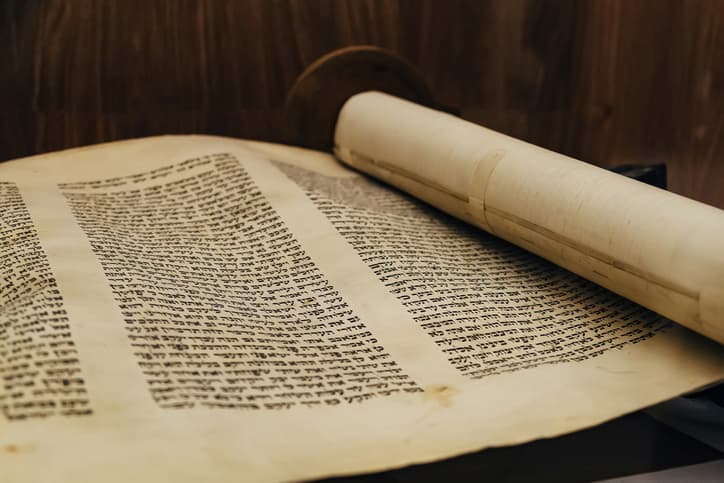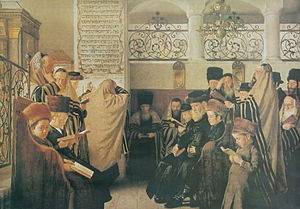וּשְׁמַרְתֶּם֘ וַעֲשִׂיתֶם֒ – Observe and practice
כִּ֣י הִ֤וא חָכְמַתְכֶם֙ וּבִ֣ינַתְכֶ֔ם לְעֵינֵ֖י הָעַמִּ֑ים- For it is your wisdom and intelligence in the eyes of the nations
אֲשֶׁ֣ר יִשְׁמְע֗וּן אֵ֚ת כָּל־הַחֻקִּ֣ים הָאֵ֔לֶּה – Who, upon hearing all these laws
וְאָמְר֗וּ רַ֚ק עַם־חָכָ֣ם וְנָב֔וֹן הַגּ֥וֹי הַגָּד֖וֹל הַזֶּֽה – Will say “this great nation is wise and intelligent.”
This brief paragraph stands out from amongst all the words of encouragement and admonition the Torah uses to convince the stubborn Israelites to observe its laws. There is no mention here of great rewards and horrible punishments, and no mention of the covenant between God and the people, though they do appear in the larger context. This paragraph, read independently, delivers a powerful message which has withstood the test of time: there is immense wisdom in the Torah, and it will grant Israel a special status among the nations.
Before I continue to explore this idea, I would like to say that this should also be how we understand the concept of the chosen people, a ubiquitous element of our prayers and philosophy. There are no intrinsic talents, no physical or mental DNA, which set us apart from others. Rather, we have changed gradually, over millennia, to form a better society based on the teachings of the Torah, which we were chosen to receive. Interestingly enough, the adherence to the teachings of the Torah did cause a genetic difference between Jews and other religions, and that has to do with one of the greatest values heralded by the Torah: learning!
למד – the Hebrew word for both learn and teach, appears in Deuteronomy seventeen times, and the central celebration in the Jewish calendar, Pesah, revolves around a dialog with the next generation, an exchange of information and knowledge which still fascinates Jews today, thousands of years after the exodus. The final command to Moshe before his death is to teach the Israelites the poetic beauty of the Torah, and there also appears a call for the study of history:
שְׁאַ֤ל אָבִ֙יךָ֙ וְיַגֵּ֔דְךָ זְקֵנֶ֖יךָ וְיֹ֥אמְרוּ לָֽךְ – Ask your father, he will tell you, your elders, they will recount…
While other nations had a clear division of roles between workers, free men, scholars, with education reserved only for clergy, nobility, and royalty, the Israelites saw education as an obligation. Already in the book of Judges (8:14) we read about a young lad, randomly picked by Gideon, who was able to write the names of seventy-seven men. Around the time of the destruction of the Second Temple, the first public school system was established in Israel, and for centuries to follow, the academies in Israel, Babylonia, Spain, Germany, and Provence, were the power centers of the exiled nation, accessible to anyone thirsty for knowledge. Meanwhile, in the Non-Jewish world, public education has all but disappeared, and monks were the only ones who were required by monastic rule to read, as Stephen Greenblatt writes in The Swerve (p. 24):
For long centuries monasteries had been virtually the only institutions that cared about books. Even in the stable and prosperous times of the Roman Empire, literacy rates, by our standards at least, were not high. As the empire crumbled, as cities decayed, trade declined, and the increasingly anxious population scanned the horizon for barbarian armies, the whole Roman system of elementary and higher education fell apart… schools closed, libraries and academies shut their doors, professional grammarians and teachers of rhetoric found themselves out of work. There were more important things to worry about than the fate of books.
Meanwhile, in the Jewish world, literacy was celebrated and prized, and in a famous medieval court case, two Jewish merchants fight over the right to use books. The relegation of scholarships to monasteries had an unforeseeable impact on the Christian world. As the best and brightest were encouraged to choose life of celibacy, their DNA was systematically removed from the genetic pool, while in the Jewish world, those who possessed similar intelligence were sought after by matchmakers and were even granted support to be able to sustain a family.
But learning and scholarship mean nothing if they have no practical application, and here also, the wisdom of the Torah is shown. The Torah and the Tanakh appreciate hard work and engagement in all aspects of the physical world, and at the same time eschew greed and envy. The Torah does not call for a life of asceticism and deprivation, but rather wants people to be prosperous and use their wealth and talents to help others. The social system of the Torah, with its emphasis on supporting the poor, the needy, the orphans, the widows, and the sojourners, is unparalleled, and as it would be clear to anyone who reads Adam Grant’s fabulous book, Give and Take, it is the secret of the financial success of Jews.
There are more wise benefits in learning, knowing, and observing the Torah: we are taught that we are created in the image of God, an idea that fills us with pride but also calls upon us to strive for higher grounds, morally, emotionally, and intellectually. It is a concept that warns us against discrimination and that has yet to be fully grasped by all humanity, Jews included. The Torah’s insistence on purity and cleanliness, even during military campaign, has driven further the notion of human dignity and has helped Jews develop a sensitivity towards the suffering and tribulations of others, because they understood the basic principle of human dignity.
The idea of a universal rest day, the abolishment of physical punishment for monetary damages, the creation of a robust judicial system, and the social justice advocated by the prophets are some of the other gifts of the Torah to us and to all humanity.
Let us keep an eye, when we read the Tanakh and when we study the history of the Jewish People, for those gifts, and let us ask how can we use them to benefit the whole world.









Parashat Behar – Weekday Torah Reading (Moroccan TeAmim)